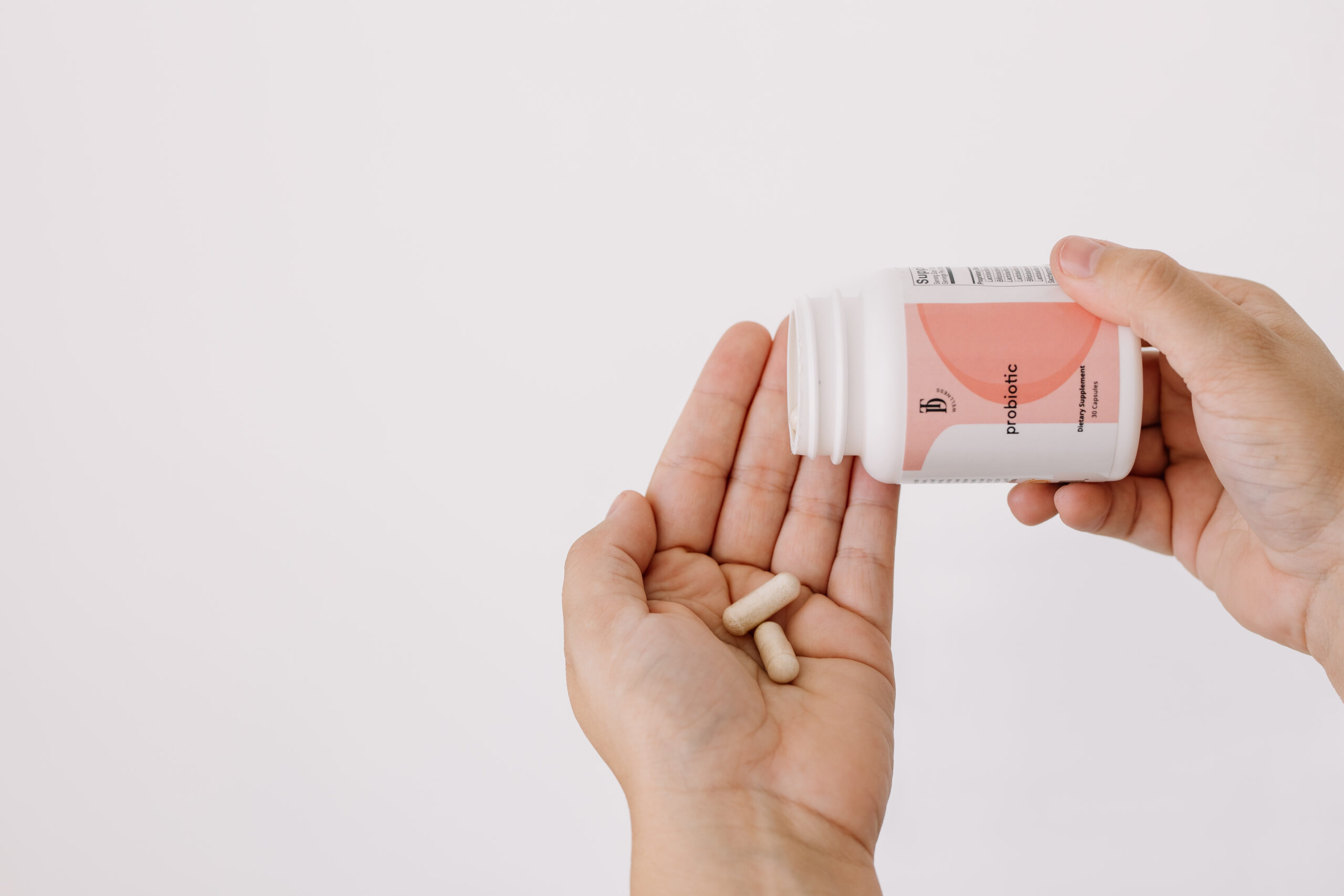Healthy Sleep Habits

Are You Incorporating These Healthy Sleep Habits Into Your Routine?
Have you been attempting to achieve optimal health and performance, but feel like you’re not quite there yet? If you still feel off even though you’ve been eating the “right” foods, avoiding the wrong foods, incorporating supplements, and managing stress, then there could be one critical component that you are overlooking… your sleep!
So, how are you sleeping? My clients’ responses to this one question are quite similar. “It’s good once I fall asleep,” “I can’t seem to get enough of it!” or “I wake up and usually can’t fall back to sleep.”
Many of my clients struggle with this significant contributing factor in achieving optimal health. If your body isn’t getting the necessary time to rest and restore itself, then it’s likely not functioning as optimally as it could.
Is Poor Sleep Affecting Your Health?
Whether it’s poor sleep or insufficient sleep, these issues could affect your health more than you realize. Sleep deprivation, poor sleep quality, and circadian rhythm disturbance (like jet lag) can all have an effect on the overall restorative quality of the sleep state. This sleep loss can reduce exercise activity performance along with more serious health concerns.
Here are some main health issues you could be experiencing (aware of it or not).
-
Adrenal Fatigue: Disrupted sleep can lead to an increased sympathetic nervous system and adrenocortical activity. This means that instead of relaxing, your body may stay in the “fight or flight” mode, which puts more stress on your adrenals. (Check out my article, Are You Overworking Your Adrenals?” post for more information about this).
2. Glucose Metabolism: Poor sleep quality can affect your body’s metabolization of glucose, increasing your risk of insulin resistance and diabetes.
3. Immune Function: Poor and disrupted sleep could increase pro-inflammatory cytokines, which promotes immune system dysfunction. If your immune system isn’t working ideally, you will be more prone to illnesses, which will keep you from performing your best – physically and mentally.
4. Brain Function: Insufficient sleep contributes to reduced cognitive function, memory impairment, decreased vigilance, sporadic attention, and shifts in optimum response capability.
Quality Sleep Vs. Poor Sleep
When you wake up in the morning, you should feel refreshed, energized, and ready to take on the day. According to the National Sleep Foundation, key determinants of quality sleep include:
-
Actually sleeping while in bed (at least 85 percent of the total time)
-
Falling asleep in 30 minutes or less
-
Waking up no more than once per night
-
Being awake for 20 minutes or less after initially falling asleep
Are you thinking, “Wow, that all sounds incredible! I wish my sleep was like that!”. If you find yourself tossing and turning for hours, staring into the blackness overthinking, and/or waking up multiple times a night, I have some tips for you that will help you create healthy sleep habits. Modifying your sleep routine will allow you to finally achieve that high-quality sleep that gets you closer to reaching your optimal health and performance.
5 Habits To Improve Sleep
Reset Circadian Rhythms
Our bodies have an internal biological clock that regulates your circadian rhythm. It responds to the lightness and darkness of one’s environment and affects your sleep/wake cycles. Because many of our bodily systems correspond to our circadian rhythm- like hormone release, eating habits, digestion, and body temperature- it’s vital that our daily schedules are as close to our internal biological clock as possible.
Research has shown that people who work night shifts have higher rates of multiple health issues because they are working against their internal clock. If possible, try to go outside as close to sunrise and sunset as possible, expose yourself to natural light during the day, and go to bed as soon as you feel tired after sunset.
Disconnecting
A couple of hours before bed, try to get into a routine of turning off your electronics and doing an activity that tells your body it’s getting close to bedtime. Instead of watching television or scrolling through your Instagram feed in the evenings, pick up a book, cook dinner in dim light, practice some yoga or gentle stretching, take a bath with some calming essential oils, or just get in some quiet time for yourself. Disconnecting from the outside world can help you quiet your mind and body so you are more relaxed when it comes time to sleep.
Melatonin Production
Once the sun sets and it gets dark outside, your pineal gland secretes the hormone, melatonin. This hormone tells your body that it’s nighttime and that it’s ready for bed, making you feel tired. However, because we have access to artificial light in the evening and can stay up however late we want, the evolutionary process of secreting melatonin is reduced. Therefore, it’ll be harder to feel naturally tired when you lie down at night, impacting the quantity and quality of your sleep. Try to use dim lights in the evening or spend time outside, especially in the summertime! Melatonin supplements may also help boost melatonin levels to help you naturally fall asleep faster. One of my favorites is readisorb liposomal melatonin. I don’t recommend supplementing long term but some people that have gut and cortisol issues need a little extra help while they work on the root cause.
Blue Light Blockers
Many of us are on our phones and computers after the sun sets. We use that time to get extra work done or to just destress after a long day. However, this blue light exposure sends signals to our brains that it’s still day time, affecting your circadian rhythm. This makes it harder for your body to sleep once you decide to go to bed. If you need to be on electronics, be sure to use blue light blockers to block those signals to your brain and reduce potential damage to your retina. And when I say blue light blockers, I mean the real ones that are actually effective.
Turning Off WiFi
Make it a habit to start turning off your WiFi in the evening or at least when you go to bed. EMFs are emitted from WiFi and can have negative side effects on your health. These include increased oxidative stress, endocrine changes, sperm/testicular damage, cellular apoptosis, as well as sleep problems.
It can impact your sleep because EMFs can affect brain and pineal gland activity, altering your melatonin production. As you read above, melatonin is needed for your body to feel tired, so turning your WiFi off, especially in your bedroom at night, can help maintain normal melatonin secretion.
Try making these practices a habit this month. Once you start falling asleep faster and waking up refreshed, you’ll want to stick to these habits forever! You will feel your energy levels increase and your body will just feel overall healthier and more regulated.
Stay Updated With Exciting News at Taylor Dukes Wellness!
We are always working on new ways to serve you on your health journey. Be the first to know about new offerings, health articles, and more by clicking here and filling out your information so we can be in touch.
Share This Post:
Your Wellness Deep Dive
- Be the first to learn about new healthy living resources, blog posts, and exclusive TDW offerings by getting on my insider list.
- Find healthy living products with ingredients you can trust – the same ones I personally use for myself and my family – in the TDW Shop. Check out our protein powders, electrolytes, supplements, and more!
- Get personalized support through the TDW Community. When you become a member, you get access to functional medicine expertise from me and my team, functional medicine lab testing and 1:1 consults, a digital library of exclusive wellness content, live monthly Q&As with me, and so much more!
YOU MAY ALSO LIKE:
Helping you get your gut right, improve energy, boost immunity, balance hormones, sleep better and look + feel your best
DISCLAIMER
PRIVACY POLICY
TERMS + CONDITIONS
ACCESSIBILITY
© 2024 Taylor Dukes Wellness
LEARN
SHOP
ABOUT
TDW Community
Free Guides
Blog
TDW Store
Fullscript
About Taylor
Press
Contact
COOKIE POLICY
SITE CREDIT
Trusted Products



